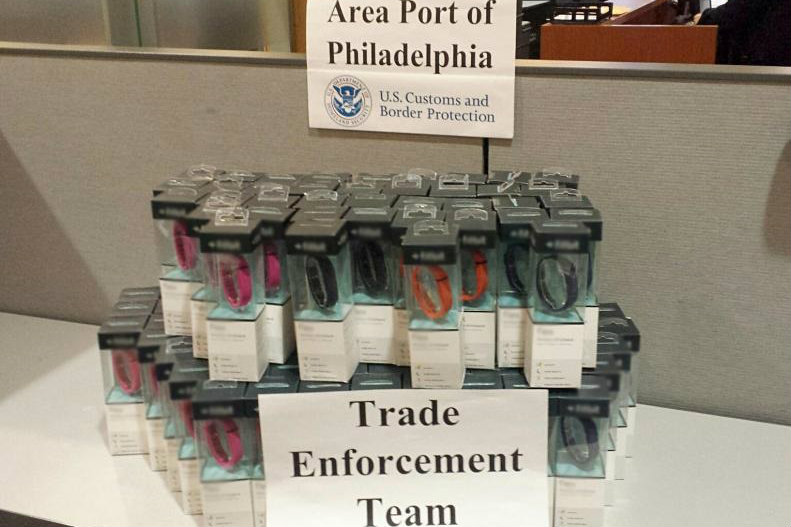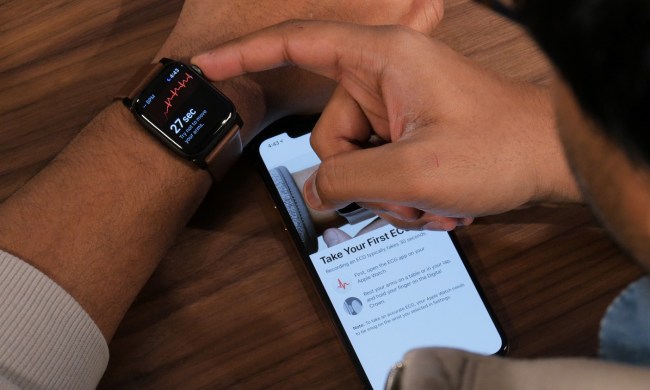
On December 4, customs agents stopped the shipment in Philadelphia. After confirming with the trademark holder that the shipment was counterfeit, Customs and Border Protection (CBP) seized the devices on January 4. “Intellectual property rights enforcement is a CBP priority trade issue, and a mission that we take very seriously,” said Susan Stranieri, Customs and Border Protection port director for the Area Port of Philadelphia.

CBP Public Affairs Officer Steve Sapp told Gizmodo, “We’ve been seizing hoverboards, Beats headphones, and this Fitbit seizure is the biggest of that kind of item that I’ve seen.” The shipment was only 350 devices, but authorities estimated the worth at $35,000 if they were real.
To recap the “hoverboards” mentioned are actually motorized scooters, and the “Beats” headphones obviously aren’t real Beats. These counter-Fitbits aren’t expected to burst into flame like cheap scooters, though considering real Fitbits have given people rashes, maybe Fakebits make your entire hand fall off at the wrist. In any case, getting ripped off for a counterfeit device would no doubt make a consumer feel cheated. The fakes may be filled with junk metal, or they may work, just not as accurately as the real thing.
The latter could be true considering reports of inaccurate Fitbit readings. While complaints of calorie recommendations being off have been popping up here and there since the devices were released (and that’s not just with Fitbit), calorie recommendations are a minor issue compared to missing miles or underreporting heart rate — and unfortunately there’s a problem with the latter. It remains to be seen if Fitbit inaccuracy issues can be blamed on Fakebits making their way into the market.


